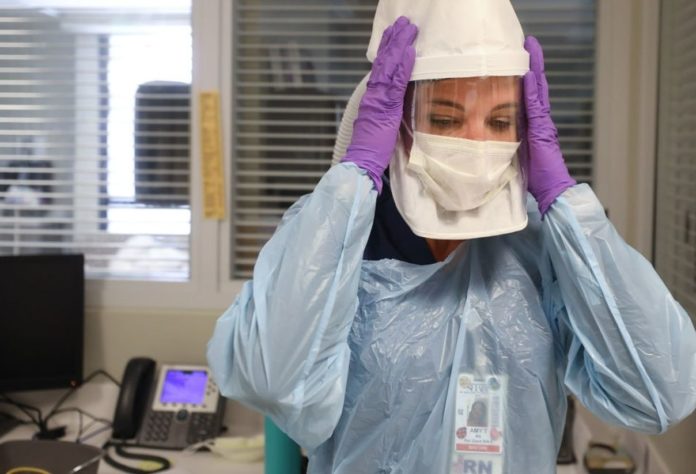In a recent study published in EClinicalMedicine, researchers discovered that people with more severe COVID-19 symptoms performed worse on an online series of tests, especially in reasoning and problem-solving.
Further research revealed that those who were given mechanical ventilation in the hospital had the greatest cognitive impairment.
- Does This Mean We Stopped Being Animal and Started Being Human Due to ‘Copy Paste’ Errors?
- The One Lifestyle Choice That Could Reduce Your Heart Disease Risk By More Than 22%
- Aging: This Is What Happens Inside Your Body Right After Exercise
- Immune-Boosting Drink that Mimics Fasting to Reduce Fat – Scientists ‘Were Surprised’ By New Findings
- Gun Violence in America: What They Don’t Talk About at the Debate
Just before the pandemic, Dr Adam Hampshire, first author of the study and Reader in Restorative Neuroscience at Imperial College London, made available online tests for the BBC2 Horizon’s Great British Intelligence test. The study team expanded the questionnaires in early 2020 to include SARS-CoV-2 infection symptoms and hospitalization.
12 689 of the 81 337 people who provided complete data suspected COVID-19. Many participants reported having respiratory symptoms but being able to stay at home (3,559 participants). Nearly 200 were hospitalized (192 participants), 44 of whom required mechanical ventilation.
The time period from illness onset was approximately 1-6 months, which meant that the study could not draw definitive conclusions about the duration of these cognitive effects.
The study discovered a link between overall cognitive performance deficits and the severity of respiratory symptoms experienced.
Additionally, the researchers revealed that not all areas of cognitive ability were associated with COVID-19 illness in the same way and that some abilities were spared, including emotional discrimination (recognition of faces expressing the same emotion) and working memory (remembering where a sequence of squares appears on the screen).
In comparison, ‘executive’ tasks that required reasoning (e.g., determining whether two words had similar relationships) and problem-solving (calculating the number of moves required to move from one arrangement to another) appeared to have the greatest deficit.
To determine the magnitude of the deficits, the authors compared the pattern of test scores to cognitive changes caused by other factors. The effects in patients receiving mechanical ventilation were comparable to the average cognitive decline observed over a ten-year period of ageing and were equivalent to a seven-point difference in IQ.
Dr Adam Hampshire, first author on the study, said:
“Our study adds to an increasing body of research that is looking at different aspects of how COVID-19 might be impacting the brain and brain function. This research is all converging to indicate that there are some important effects of COVID-19 on the brain that need further investigation.
Dr Hampshire further added:
“Going forward it would be valuable to bring together brain imaging and cognitive tests with other information on mental health and everyday function, ideally in studies that track peoples’ trajectories for months or even years. To really know what the long-term effects are for people will require people to be followed up over time.”
New studies, such as the COVID-19 Clinical Neuroscience Study (COVID-CNS), led by King’s College London and the University of Liverpool, and the REACT Long COVID study, led by Imperial College London, are now examining the long-term effects of COVID-19 using these cognitive tools.
“A critical question remains as to why some cognitive functions are more affected than others,” said Mitul Mehta, Professor of Neuroimaging from King’s College London and senior author on the study.
“It is already known that hypoxia and mechanical ventilation are associated with cognitive deficits similar to those observed in this study, and there is now evidence of neurological complications in some patients, as well as psychiatric consequences.
“As we are coming through the third wave of the pandemic, there are more available options that can reduce the severity of COVID-19 such as vaccination and effective treatments whilst in hospital.
- Does This Mean We Stopped Being Animal and Started Being Human Due to ‘Copy Paste’ Errors?
- The One Lifestyle Choice That Could Reduce Your Heart Disease Risk By More Than 22%
- Aging: This Is What Happens Inside Your Body Right After Exercise
- Immune-Boosting Drink that Mimics Fasting to Reduce Fat – Scientists ‘Were Surprised’ By New Findings
- Gun Violence in America: What They Don’t Talk About at the Debate
“The findings from this study suggest that by reducing the severity of illness through these different approaches we may also be able to reduce the severity of cognitive difficulties people may experience.”
Image Credit: Getty
